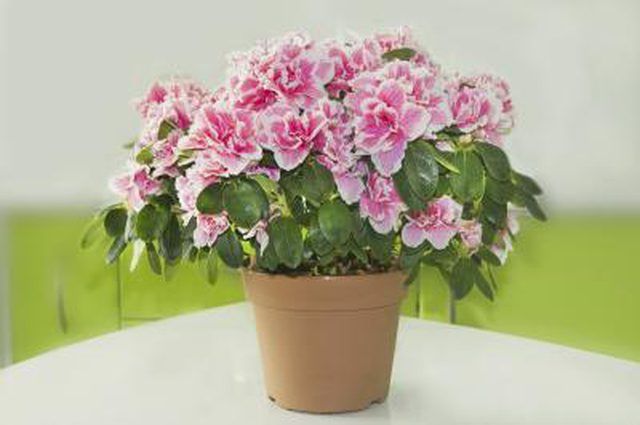Bulbs
Flower Basics
Flower Beds & Specialty Gardens
Flower Garden
Garden Furniture
Garden Gnomes
Garden Seeds
Garden Sheds
Garden Statues
Garden Tools & Supplies
Gardening Basics
Green & Organic
Groundcovers & Vines
Growing Annuals
Growing Basil
Growing Beans
Growing Berries
Growing Blueberries
Growing Cactus
Growing Corn
Growing Cotton
Growing Edibles
Growing Flowers
Growing Garlic
Growing Grapes
Growing Grass
Growing Herbs
Growing Jasmine
Growing Mint
Growing Mushrooms
Orchids
Growing Peanuts
Growing Perennials
Growing Plants
Growing Rosemary
Growing Roses
Growing Strawberries
Growing Sunflowers
Growing Thyme
Growing Tomatoes
Growing Tulips
Growing Vegetables
Herb Basics
Herb Garden
Indoor Growing
Landscaping Basics
Landscaping Patios
Landscaping Plants
Landscaping Shrubs
Landscaping Trees
Landscaping Walks & Pathways
Lawn Basics
Lawn Maintenance
Lawn Mowers
Lawn Ornaments
Lawn Planting
Lawn Tools
Outdoor Growing
Overall Landscape Planning
Pests, Weeds & Problems
Plant Basics
Rock Garden
Rose Garden
Shrubs
Soil
Specialty Gardens
Trees
Vegetable Garden
Yard Maintenance
How to Grow Azaleas From Cuttings
How to Grow Azaleas From Cuttings . Producing a new azalea (Rhododendron spp.) from cuttings creates a new plant with the same characteristics as its parent. Reproducing azaleas from cuttings is often the only way to duplicate the style of a particular plant, since many azaleas are hybridized plants that can't reproduce the same traits from seed....

Producing a new azalea (Rhododendron spp.) from cuttings creates a new plant with the same characteristics as its parent. Reproducing azaleas from cuttings is often the only way to duplicate the style of a particular plant, since many azaleas are hybridized plants that can't reproduce the same traits from seed. Azalea species such as flame azalea (Rhododendron calendulaceum) often have a narrow growing range. Flame azaleas grow in U.S. Department of Agriculture plant hardiness zones 5 to 7.
Best Azalea Cuttings
Growing evergreen azaleas from cuttings is typically much more successful than their deciduous counterparts. During the summer after the new growth from the spring season has just begun to harden and turn brown is the best time to take an azalea cutting. The most viable cuttings come from healthy plants that are not stressed by malnutrition, insect damage or disease. A growing azalea branch that is brown but still flexible 3 to 6 inches from its tip with several healthy leaves is an ideal candidate. Dipping the blades of your cutting shears in rubbing alcohol and air-drying them is an effective way to avoid introducing diseases to your azalea and the cutting.
Preparing the Container
The Clemson University Cooperative Extension recommends starting azalea cuttings in a mix of peat and perlite in equal parts. Wetting the soil before you insert an azalea cutting encourages rooting and helps keep the cutting hydrated. You can use any planting container large enough to hold the cuttings that is clean and has drainage holes. You can sterilize used containers by rinsing them with a solution of 1 part bleach to 10 parts water.
Preparing Azalea Cuttings
Removing the leaves from the bottom half of the cutting reduces the amount of nutrients and water it will lose before it can establish roots. Leave at least two leaves near the tip of the cutting. Trimming the stem just beneath the point where the first leaf attached to the cutting removes excess material that cannot form roots. Dipping the bottom third of the trimmed cutting in a powered rooting hormone improves its ability to generate new roots. Gently tap the cutting's stem to dislodge excess rooting hormone after dipping it.
Planting Azalea Cuttings
Cuttings often fail to take root, but planting several cuttings at the same time improves the odds that at least one will take. Azalea cuttings need 2 to 3 inches of space between the edge of the container and other cuttings to thrive. Insert each cutting into the soil until the bottom third of the stem is covered and gently firm the soil around the cutting's base to prevent it from falling over.
Caring for Azalea Cuttings
Cuttings can not replenish water they lose until they have formed new roots. Maintaining a high level of humidity around the leaves of the cuttings helps reduce water loss, preventing your cuttings from drying out. You can increase the humidity around an azalea cutting by misting its leaves with water and covering it with a clear plastic bag or the severed bottom half of a plastic 2-liter bottle. Once the cutting develops roots, the plastic cover can be removed. When the cutting develops resistance to a gentle tug, its roots have begun growing. Until the roots have had time to establish themselves fully, the cutting needs regular, light watering to keep the soil around the roots from drying out.
Safe Handling
Nearly all parts of azalea plants are toxic when consumed. Wearing gloves while working with cuttings and washing your tools and hands after you are finished helps prevent cases of accidental poisoning. Avoid eating or handling food while you are working with the cuttings.